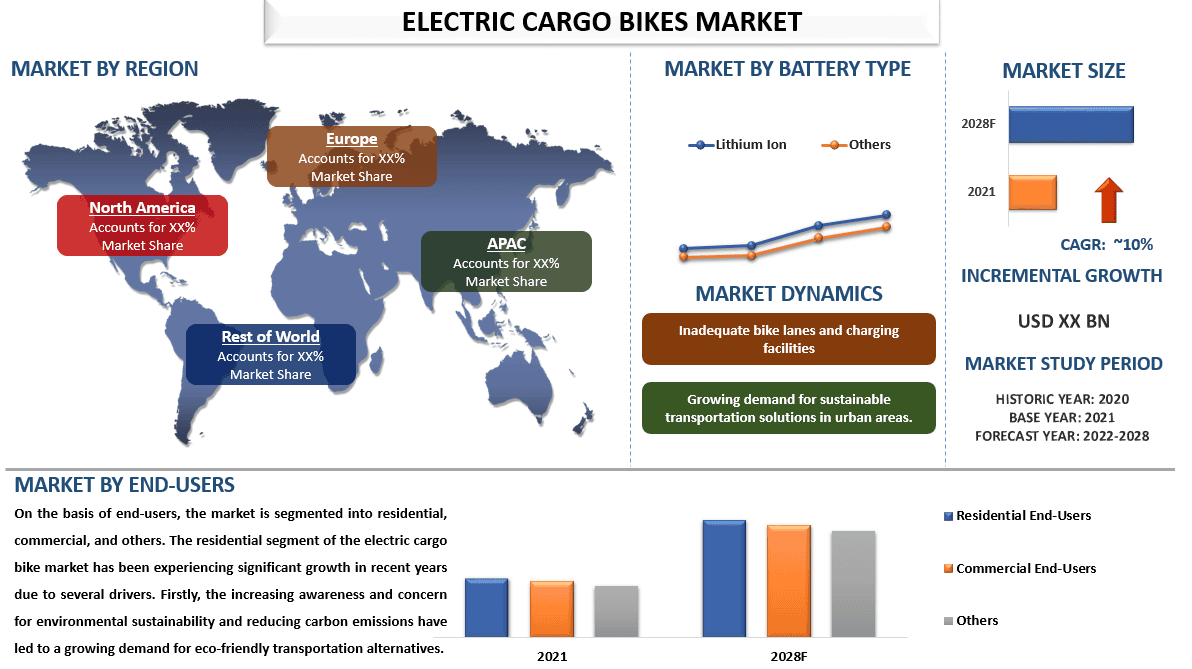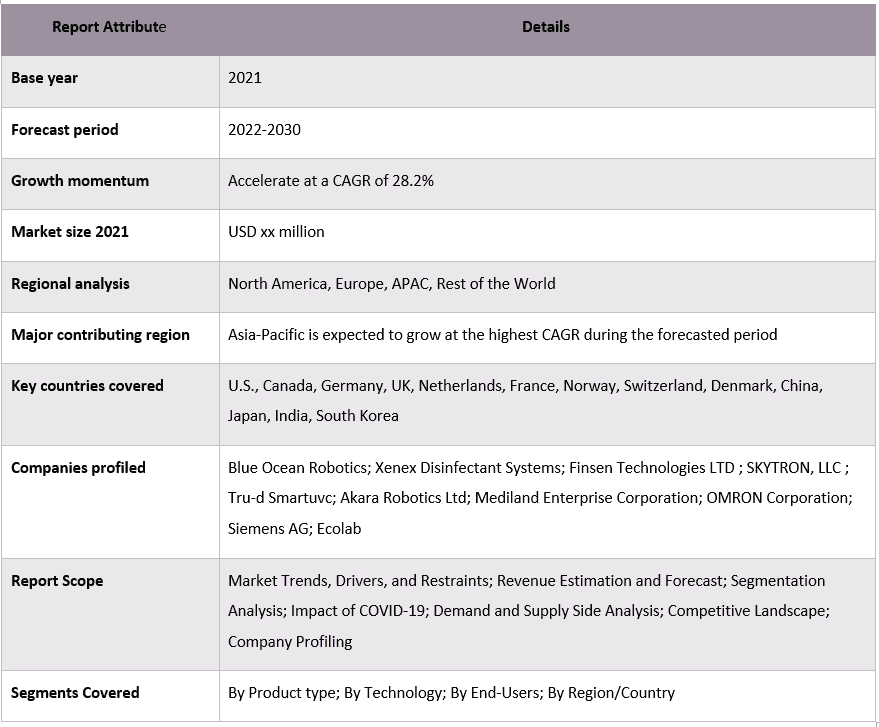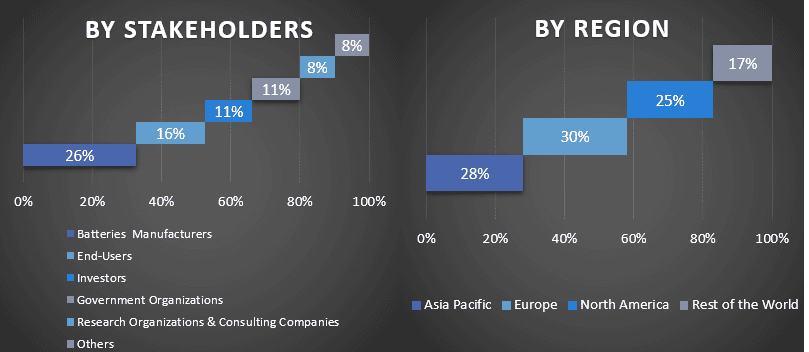- Home
- About Us
- Industry
- Services
- Reading
- Contact Us
Electric cargo bikes Market: Current Analysis and Forecast (2022-2028)
Emphasis on Product Type (Two Wheeled, Three Wheeled, and Four Wheeled); Battery Type (Lithium Ion and Others); and End-Users (Residential, Commercial and Other); Region/Country

The electric cargo bikes market is expected to grow at a strong CAGR of around 10% during the forecast period owing to the increasing demand for sustainable transportation solutions, particularly in urban areas. Electric cargo bikes offer a clean, efficient, and cost-effective alternative to traditional delivery vans or trucks, allowing companies to reduce their carbon footprint and improve their environmental impact.
Another important factor driving the growth of the electric cargo bike market is the rise of e-commerce and home delivery services. With more people shopping online and expecting fast, reliable delivery of goods to their doorstep, the demand for efficient last-mile delivery solutions has skyrocketed. Electric cargo bikes are well-suited to this task, as they can navigate crowded city streets and deliver goods quickly and easily.
Recent developments in the electric cargo bike market have included new product launches and partnerships between companies. For example, in 2021, UPS announced a new partnership with electric cargo bike manufacturer Rytle to expand its last-mile delivery capabilities in Europe. Similarly, in 2020, e-commerce giant Amazon announced that it would be adding 10,000 electric delivery vehicles, including electric cargo bikes, to its fleet in Europe and North America. Other companies that have recently entered the electric cargo bike market include established bicycle manufacturers such as Trek and Specialized, as well as startups like Tern and Xtracycle. These companies are developing new and innovative electric cargo bike designs, incorporating features like modular cargo systems, advanced battery technology, and improved handling and stability. Overall, the electric cargo bike market is poised for continued growth in the coming years, as more companies look for sustainable and efficient transportation solutions to meet the demands of modern commerce. With new products, partnerships, and innovations emerging all the time, the future looks bright for this exciting and rapidly evolving market.
Some of the major players operating in the market include Butchers & Bicycles, CERO INC., DOUZE Factory SAS, Jiangsu Xinri E-Vehicle Co. Ltd., Kocass End-Use Co. Ltd., Rad Power Bikes Inc.,, Riese & Müller GmbH ·, Worksman Cycles. , Xtracycle Cargo Bikes, and Yuba Electric Cargo Bikes. Several M&As along with partnerships have been undertaken by these players to facilitate customers with hi-tech and innovative products/technologies.
Insights Presented in the Report
“Amongst product type, the smart appliances segment held a dominating share of the market in 2021”
Based on product type, the market is segmented into two wheeled, three wheeled, and four wheeled. The three-wheeler segment of the electric cargo bikes market is experiencing significant growth due to several key drivers. One of the main drivers is the growing demand for eco-friendly transportation solutions. With increasing concern about the environmental impact of traditional modes of transportation, many businesses are looking for alternative options that are sustainable and efficient. Electric cargo bikes with three wheels provide an excellent solution for local deliveries, as they are emissions-free, energy-efficient, and cost-effective.Another driver of growth in this segment is the rise of e-commerce and last-mile delivery. As more consumers shop online, there is a growing need for efficient and reliable last-mile delivery services. In addition, the three-wheel design provides greater stability and carrying capacity compared to traditional two-wheeled cargo bikes, making them ideal for transporting larger or heavier packages.
“Amongst end-users, the commercial segment held the significant share of the market in 2021”
On the basis of end-users, the market is segmented into residential, commercial, and others. Among these, The commercial segment of the electric cargo bikes market has experienced significant growth in recent years, and there are several drivers that contribute to this trend. One of the primary drivers is the increasing demand for sustainable transportation solutions in urban areas. Electric cargo bikes offer an attractive alternative to traditional delivery vehicles, as they produce zero emissions and are much more energy-efficient. Another driver of the commercial segment of the electric cargo bikes market is the growth of e-commerce and the increasing demand for last-mile delivery services. With more consumers shopping online and expecting faster delivery times, businesses are under pressure to find cost-effective and efficient ways to deliver their products.
“Europe has a significant share of the electric cargo bikes market”
The European region has a significant share of the electric cargo bikes market due to several drivers. Firstly, there is an increasing demand for sustainable transportation options, which has led to a rise in the popularity of electric bikes. Cargo bikes are particularly attractive for urban logistics due to their ability to transport goods without contributing to pollution or traffic congestion. Secondly, governments in the region have implemented policies to encourage the use of electric bikes, such as offering subsidies or creating dedicated bike lanes. Recent developments by companies in the region also contribute to the growth of the electric cargo bike market. In 2020, German company Riese & Müller launched their Packster 70, an electric cargo bike with a 70cm-long cargo area and a carrying capacity of up to 200kg. This bike is designed for commercial use, with features such as a lockable cargo compartment and a modular system for adding accessories. Also in 2020, Dutch company Urban Arrow introduced the Tender, a three-wheeled electric cargo bike with a unique tilting mechanism that allows it to navigate tight corners and narrow streets. Another example of recent developments in the European electric cargo bike market is the partnership between Swedish electric bike manufacturer Vélosophy and delivery company Budbee.
Electric cargo bikes Market Report Coverage

Reasons to buy this report:
- The study includes market sizing and forecasting analysis validated by authenticated key industry experts.
- The report presents a quick review of overall industry performance at one glance.
- The report covers an in-depth analysis of prominent industry peers with a primary focus on key business financials, product portfolios, expansion strategies, and recent developments.
- Detailed examination of drivers, restraints, key trends, and opportunities prevailing in the industry.
- The study comprehensively covers the market across different segments.
- Deep dive regional level analysis of the industry.
Customization Options:
The global electric cargo bikes market can further be customized as per the requirement or any other market segment. Besides this, UMI understands that you may have your own business needs, hence feel free to connect with us to get a report that completely suits your requirements.
Table of Content
Research Methodology for the Electric cargo bikes Market Analysis (2022-2028)
Analyzing the historical market, estimating the current market, and forecasting the future market of the global electric cargo bikes market were the three major steps undertaken to create and analyze the adoption of electric cargo bikes in major regions globally. Exhaustive secondary research was conducted to collect the historical market numbers and estimate the current market size. Secondly, to validate these insights, numerous findings and assumptions were taken into consideration. Moreover, exhaustive primary interviews were also conducted, with industry experts across the value chain of the global electric cargo bikes market. Post assumption and validation of market numbers through primary interviews, we employed a top-down/bottom-up approach to forecasting the complete market size. Thereafter, market breakdown and data triangulation methods were adopted to estimate and analyze the market size of segments and sub-segments of the industry pertains to. Detailed methodology is explained below:
Analysis of Historical Market Size
Step 1: In-Depth Study of Secondary Sources:
Detail secondary study was conducted to obtain the historical market size of the electric cargo bikes market through company internal sources such as annual reports & financial statements, performance presentations, press releases, etc., and external sources including journals, news & articles, government publications, competitor publications, sector reports, third-party database, and other credible publications.
Step 2: Market Segmentation:
After obtaining the historical market size of the electric cargo bikes market, we conducted a detailed secondary analysis to gather historical market insights and share for different segments & sub-segments for major regions. Major segments are included in the report as product, technology, and end-users. Further country-level analyses were conducted to evaluate the overall adoption of testing models in that region.
Step 3: Factor Analysis:
After acquiring the historical market size of different segments and sub-segments, we conducted a detailed factor analysis to estimate the current market size of the electric cargo bikes market. Further, we conducted factor analysis using dependent and independent variables such as product, technology, and end-users of the electric cargo bikes market. A thorough analysis was conducted for demand and supply-side scenarios considering top partnerships, mergers and acquisitions, business expansion, and product launches in the electric cargo bikes market sector across the globe.
Current Market Size Estimate & Forecast
Current Market Sizing: Based on actionable insights from the above 3 steps, we arrived at the current market size, key players in the global electric cargo bikes market, and market shares of the segments. All the required percentage shares split, and market breakdowns were determined using the above-mentioned secondary approach and were verified through primary interviews.
Estimation & Forecasting: For market estimation and forecast, weights were assigned to different factors including drivers & trends, restraints, and opportunities available for the stakeholders. After analyzing these factors, relevant forecasting techniques i.e., the top-down/bottom-up approach were applied to arrive at the market forecast for 2028 for different segments and sub-segments across the major markets globally. The research methodology adopted to estimate the market size encompasses:
- The industry’s market size, in terms of revenue (USD) and the adoption rate of the electric cargo bikes market across the major markets domestically
- All percentage shares, splits, and breakdowns of market segments and sub-segments
- Key players in the global electric cargo bikes market in terms of products offered. Also, the growth strategies adopted by these players to compete in the fast-growing market
Market Size and Share Validation
Primary Research: In-depth interviews were conducted with the Key Opinion Leaders (KOLs) including Top Level Executives (CXO/VPs, Sales Head, Marketing Head, Operational Head, Regional Head, Country Head, etc.) across major regions. Primary research findings were then summarized, and statistical analysis was performed to prove the stated hypothesis. Inputs from primary research were consolidated with secondary findings, hence turning information into actionable insights.
Split of Primary Participants in Different Regions

Market Engineering
The data triangulation technique was employed to complete the overall market estimation and to arrive at precise statistical numbers for each segment and sub-segment of the global electric cargo bikes market. data was split into several segments & sub-segments post studying various parameters and trends in the areas of the product, technology, and end-users in the global electric cargo bikes market.
The main objective of the Global Electric cargo bikes Market Study
The current & future market trends of the global electric cargo bikes market were pinpointed in the study. Investors can gain strategic insights to base their discretion for investments on the qualitative and quantitative analysis performed in the study. Current and future market trends determined the overall attractiveness of the market at a regional level, providing a platform for the industrial participant to exploit the untapped market to benefit from a first-mover advantage. Other quantitative goals of the studies include:
- Analyze the current and forecast market size of the electric cargo bikes market in terms of value (USD). Also, analyze the current and forecast market size of different segments and sub-segments
- Segments in the study include areas of the product type, battery type, and end-users
- Define and analysis of the regulatory framework for the electric cargo bikes industry
- Analyze the value chain involved with the presence of various intermediaries, along with analyzing customer and competitor behaviors of the industry
- Analyze the current and forecast market size of the electric cargo bikes market for the major region
- Major countries of regions studied in the report include Asia Pacific, Europe, North America, and the Rest of the World
- Company profiles of the electric cargo bikes market and the growth strategies adopted by the market players to sustain in the fast-growing market
- Deep dive regional level analysis of the industry
Related Reports
Customers who bought this item also bought










